Showing 126–130 of 256 results
-
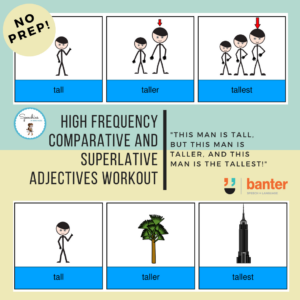
$5.99 including GST
In this 24-page no-preparation language workout, we focus on comparative and superlative adjectives ending in -er and -est, respectively.
We have chosen 20 of the highest frequency adjectives in English, and presented two examples of each: one comparing similar objects, one comparing different objects sharing the same quality.
-
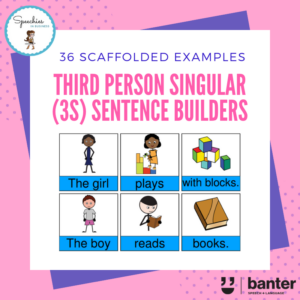
$5.99 including GST
Around the age of 36-42 months, typically developing children start to use third person singular (present tense) forms of verbs, e.g.:
These are sometimes called 3S verbs.
Some people who speak English as a second language and/or have developmental language disorders need focused practice to learn and to use this grammatical form.
This 26-page no-prep pack is designed to help, with both pictures and words making it suitable for children and adults.
-
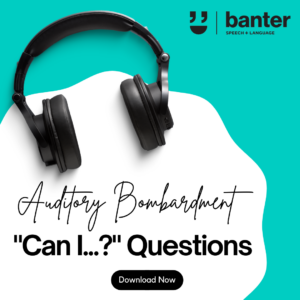
$3.99 including GST
Some children have difficulties putting their words into the right order in sentences, for instance, asking questions using “Can I…?”.
In this audio recording, children can listen to people ask for what they want by saying “Can I?”
For this grammar goal, we provide a short .m4a recording and a script with pictures, so that, daily, children can:
- simply listen to the recording as they play nearby or sit in the car;
- listen to our recording as they look at the pictures; or
- have a family member read the script to the child in a shared reading format.
-
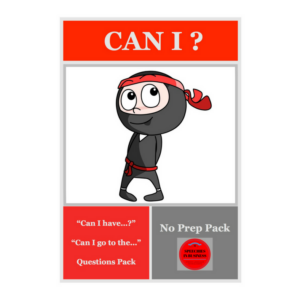
$5.99 including GST
Research tells us that many children with language learning difficulties struggle to ask questions the right way. So, too, do many children who are learning English as a second (or third or fourth) language.
Instead of asking “Can I have a strawberry?” or “Can I go to the park?” these children might say, “I can have a strawberry?” or “Go to the park can?”.
This No Prep “Can I ?” Pack is designed to help children to ask their “Can” questions the right way.
-
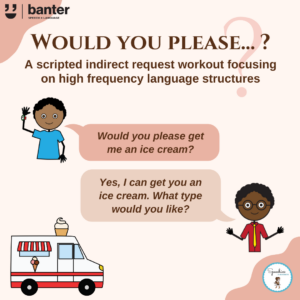
$5.99 including GST
Between the ages of 36 to 42 months, most typically developing kids start to replace direct requests (like “Give me!”) with indirect requests (like “Can I have..?” or “Would you please…?”). No one knows for sure why we do this – it’s certainly not the most efficient way to ask for things. But so-called “indirect speech” has been studied by linguists, philosophers and speech pathologists for decades (e.g. Grice, 1975; Lakoff, 1973).
Most children pick up indirect request-making skills by around 3 1/2 years of age by watching others. But some students (especially many children with communication difficulties) need some help.
In this resource, we focus on “Would you please…?” as an indirect way to ask for things.





